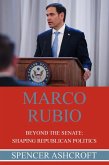Her journey began in Hawaii, where she was born and raised. As an adult, she became the first female combat veteran to serve in the U.S. Congress, bringing a perspective rarely seen in Washington. A staunch advocate for peace and a fierce critic of regime-change wars, Gabbard's policy positions have often put her at odds with the Democratic establishment. Despite her unorthodox political views, she has consistently maintained a loyal following, particularly among those who are disillusioned with traditional politics.
What sets Gabbard apart from many of her contemporaries is her independent mindset. She is not a typical Democrat, nor is she a typical Republican. Instead, she occupies a space in the political spectrum that reflects a desire for reform and a genuine commitment to protecting American values, particularly in terms of national security and foreign diplomacy. Her candidacy for president in 2020 highlighted her appeal to voters who are tired of partisanship and the entrenched political system.
Gabbard's story is also one of faith and family. A practicing Hindu, she has remained true to her roots, often citing her religious beliefs as the foundation for her decision-making. Her family background, shaped by her immigrant parents, also plays a significant role in her views on immigration, foreign policy, and economic justice.
While Gabbard has been criticized for some of her more controversial views, particularly her stance on the Assad regime in Syria and her relationship with controversial figures like India's Narendra Modi, she has remained unapologetic. Her critics argue that her positions are misguided or dangerous, while her supporters see her as a breath of fresh air in a political climate that is increasingly characterized by division and gridlock.
Throughout her career, Gabbard has consistently championed causes related to human rights, environmental protection, and privacy. Her advocacy for whistleblowers and her vocal opposition to surveillance and big tech companies' data collection practices have resonated with many concerned about the future of individual freedoms in an increasingly digital world.
As Gabbard moves forward, whether in politics or outside of it, her legacy is likely to be one of boldness, independence, and a willingness to stand up for what she believes, even when it goes against the grain. This book aims to explore the key moments, decisions, and ideological shifts that have shaped Tulsi Gabbard's public life. From her early days in Hawaii to her time in Congress and her presidential run, this journey provides a comprehensive look at the life and impact of one of the most interesting political figures of our time.
Dieser Download kann aus rechtlichen Gründen nur mit Rechnungsadresse in A, B, CY, CZ, D, DK, EW, E, FIN, F, GR, H, IRL, I, LT, L, LR, M, NL, PL, P, R, S, SLO, SK ausgeliefert werden.









